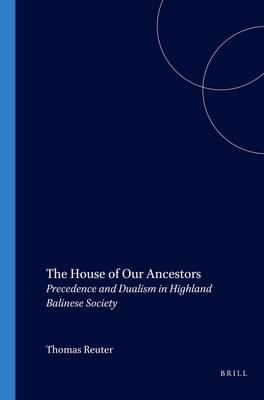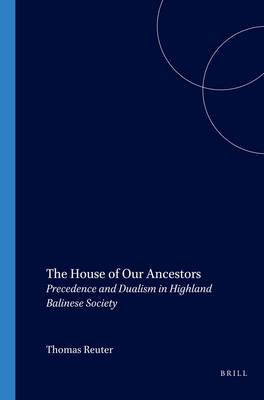
- Afhalen na 1 uur in een winkel met voorraad
- Gratis thuislevering in België vanaf € 30
- Ruim aanbod met 7 miljoen producten
- Afhalen na 1 uur in een winkel met voorraad
- Gratis thuislevering in België vanaf € 30
- Ruim aanbod met 7 miljoen producten
Zoeken
Omschrijving
The House of Our Ancestors is a study of the Mountain Balinese or Bali Aga, an ethnic group with a distinct history and culture who are thought to be the indigenous people of Bali, Indonesia. In popular ideas of Balinese identity, the highland people feature as the conceptual counterpart to the royal houses established in the southern lowlands of the island. Hidden in shadow of this courtly culture, the world of the highland Balinese has been largely ignored even though Bali counts among the most researched localities in the world. This book explores their social organization and status economy from the perspective of an innovative theory of precedence . Regional domains, villages and origin houses among the Bali Aga are all conceived and ranked in reference to the basic ideas of a sacred origin in the past, and of an order of precedence connecting the past with the present. The analysis of precedence ranking, evident at all levels of Bali Aga social organization, leads to the development of a new theory of status for Austronesian societies that departs radically from the notion of hierarchy as proposed by Louis Dumont in his classic study of the Indian caste system.
Specificaties
Betrokkenen
- Auteur(s):
- Uitgeverij:
Inhoud
- Aantal bladzijden:
- 408
- Taal:
- Engels
- Reeks:
- Reeksnummer:
- nr. 198
Eigenschappen
- Productcode (EAN):
- 9789067181853
- Verschijningsdatum:
- 1/01/2002
- Uitvoering:
- Paperback
- Formaat:
- Trade paperback (VS)
- Afmetingen:
- 163 mm x 241 mm
- Gewicht:
- 657 g

Alleen bij Standaard Boekhandel
+ 167 punten op je klantenkaart van Standaard Boekhandel
Beoordelingen
We publiceren alleen reviews die voldoen aan de voorwaarden voor reviews. Bekijk onze voorwaarden voor reviews.











